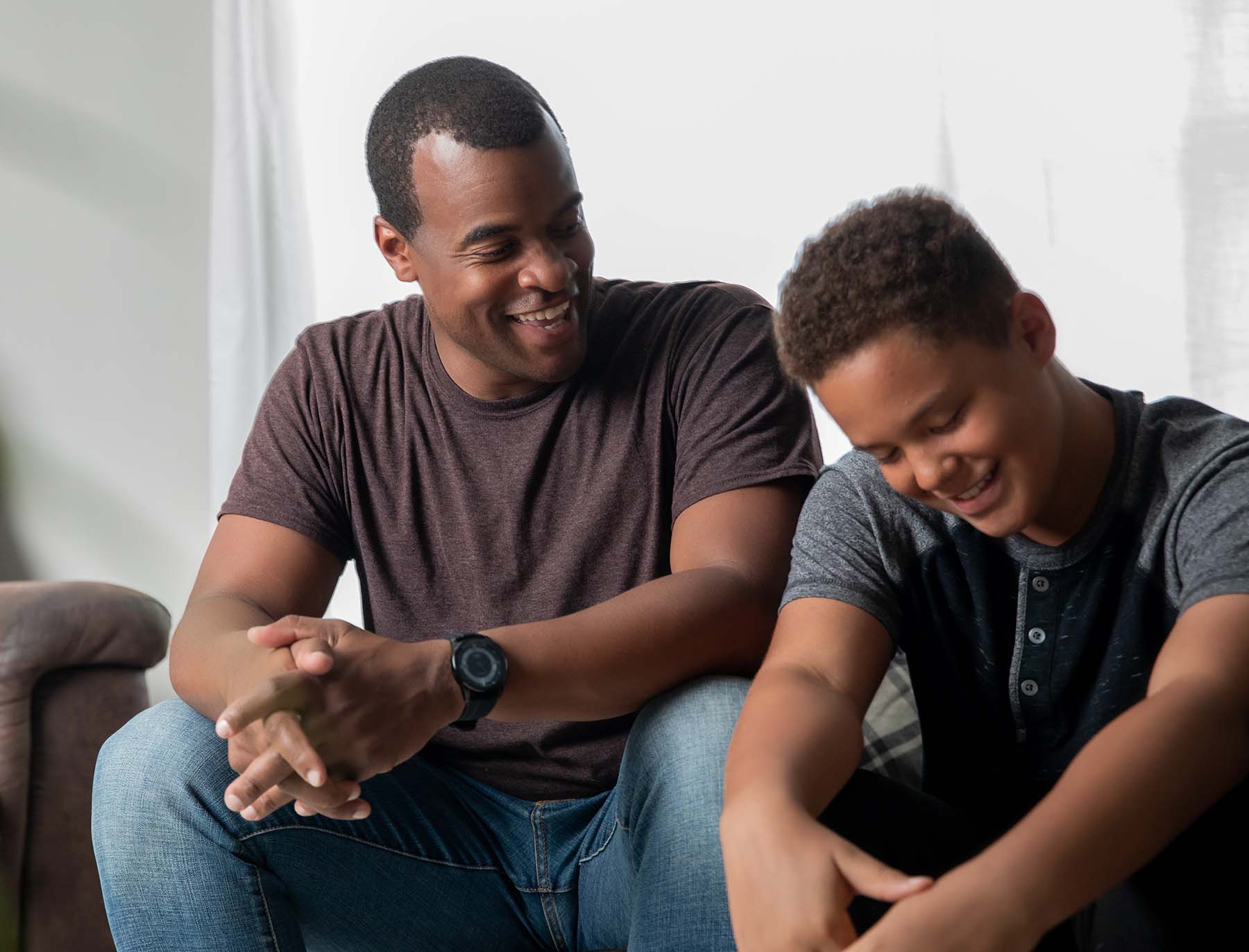How to Talk to Kids about Puberty

As your child transitions to the late elementary and middle school years, you will notice they are going through changes. It may be body odor, hair growth, or breast development. But one thing is for certain: Your child is likely to have many questions about what’s happening to them.
These are not the most leisurely conversations to have with your kids, but they are essential, says Renée N. Morgan, M.D., a pediatrician at the University of Miami Health System. They allow you to let your child know that you’re open and there to help them with any questions they have as they transition into puberty.
“Starting these talks is personal, based on the family and parent-child interactions, but I recommend starting to talk to them as soon as you begin noticing changes,” says Dr. Morgan. “Usually, this is around grade 4 or 5. You want to get ahead of the changes that your child will experience, so they can be prepared rather than being shocked.”
How to talk to your kids about puberty
These chats can be awkward and sometimes embarrassing for both kids and parents. To help with this, Lawrence Friedman, M.D., the head of adolescent medicine at UHealth, recommends letting your child drive the conversation with their questions and reassuring them about their concerns.
“It can be nerve-wracking for the child to experience all these changes, and they’re comparing themselves to their classmates and peers who might be experiencing things differently,” says Dr. Friedman. “In addition to being open to their questions, I also tell parents to encourage their kids to ask the doctor questions during their annual visits.”
Puberty can take a while. Keep talking.
The Nemours Foundation says that puberty can be a long road that can continue for many years, so parents should prepare for many discussions or quick conversations, depending on the topic.
Keeping the conversations supportive, encouraging, and not overwhelming will help your child be open and communicative about their questions.
It also doesn’t hurt for parents to initiate the conversation from time to time with some simple questions or light prodding. This can be as simple as asking them if they have any questions about their body or the changes they’re going through.
For shy or introverted kids, Dr. Morgan says that reading about the topic can also be helpful.
She recommends:
You-ology: A Puberty Guide for Every Body
Specifically for girls: Celebrate Your Body: The Ultimate Puberty Book for Girls.
Keep the conversation open.
Dr. Friedman and Dr. Morgan recommend keeping the conversation open and free-flowing – wherever it takes you and your child.
Your child should know about:
- The growth of pubic hair and underarm hair
- Acne, increased sweating, and body odor
- The growth of the breasts, hips, and legs in girls
- The development of periods for girls
- Lower voices in boys
- Growing penises and testicles in boys
- The growth of facial hair for boys
- Wet dreams for boys
One element that sometimes gets left out of these conversations is how your child changes mentally and emotionally during puberty. Dr. Friedman says it’s essential for parents to be aware of these changes to recognize them and acknowledge any concerns in this area.
“With many kids, parents may see a body that’s fully grown, but the mind is still developing, so it can be tough to deal with,” says Dr. Friedman.
“Parents need to recognize that their child is still developing behaviorally and emotionally and may make some mistakes in the years ahead. That’s where their guidance can help.”
Having the sex talk
The other significant change is the development of greater physical attraction toward others.
Don’t dictate terms about sex, Dr. Morgan says, but rather express your values and beliefs.
Parents can help teach their kids to reduce harm related to sex, such as providing information about avoiding pregnancy and STIs.
“This is a good opportunity for parents to boost their kids’ confidence,” she says. “They don’t have to do something just because their friends are doing it.”
Wyatt Myers is a contributor for UMiami Health News.
Tags: Dr. Lawrence Friedman, Dr. Renée N. Morgan, hormones, teens
